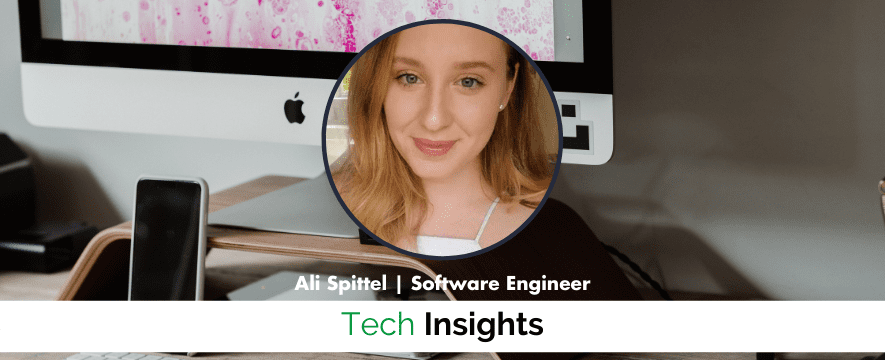The following insight was written by Arash Soheili, Co-Founder and CTO at YAA.
In August of 2021 I found myself as co-founder and CTO of a startup just after we closed our seed round. At this point I was the only software engineer and it was time to build a team. Hiring is always difficult but starting an engineering team from scratch is even more challenging. I’m going to discuss our strategy in hiring with what worked and didn’t in a retrospective way. I hope this can help others in similar situations or those who want to learn what it is like in an early stage startup engineering team.
Hiring Process
Before starting any hiring you need to get a plan and process in place. It’s very important to put together a process that you will use to interview and assess candidates. If you don’t spend the time getting this setup, you will end up wasting time on bad hires.
First off, come up with a plan to interview and assess candidates both for culture fit along with their technical engineering skills.
Pro Tip: A lesson I learned is that in an early stage startup, culture fit far outweighs technical ability. You can have the best engineer but if they don’t fit into the culture, then it will hurt everyone and they will end up leaving anyway. It’s a close knit group, so everyone has to be on the same page and get along. Optimize the early hires for fit and you will have a better chance to succeed.
The next step is to create a plan for how you will evaluate a candidate on their behavior and fit with the company. There are many resources available and one that we ended up using is outlined in the book Who by Geoff Smart. It lays out clear behavioral questions to use for the interview and how to evaluate candidates. It was recommended by one of our investors, and it was our key to hiring.
You will also need to put together your plan to assess a candidate’s technical skills. There are a wide range of ways to measure this. I would suggest keeping it simple and as short as possible. Do enough to get what you need but not more than that. These days candidates have many choices and putting them through multiple technical rounds will lead to losing candidates. Don’t compromise on what you need but be respectful of people’s time and the fact that they have choices as well.
Recruiters vs SaaS
The tools you use to fill up your pipeline can be just as important if not more than your hiring process. You can’t hire anyone if you don’t have any candidates. We tested many different strategies from posting on our own site to using many of the SaaS hiring tools in the market and using our own network. We did not find any of the software based companies effective. We would find people to interview but it would never lead to final rounds. We found that a good recruiter was more effective than the rest of the strategies. There were other recruiters that brought us no leads while the good ones came to us with 1-2 good candidates each week. Recruiters are costly but without them we most likely would not have been able to find our first hires. Recruiters are not a long term strategy but for the start it can be a good option.
The Lead Engineer
In order to build an effective team it starts with that first engineer which I would recommend to be a lead or a very senior engineer. The lead engineer will have the experience needed to navigate early technical decisions. They will also serve as the mentor for the following engineers and to help establish the type of culture you want. Make sure the person you choose has had some previous experience working in startups or smaller companies. This is a key hire and someone you will rely on heavily. Take your time to get it right to make sure they will fit culturally and have the technical knowledge that you expect.
Senior Engineers
Once you have the lead engineer in place, you can move on to hiring mid to senior level engineers. In the mid level to senior hires there will be a lot of choices on the job market. That doesn’t mean it will be easier to hire since they also have many choices. Again, you should optimize for culture and fit and find people who align with your mission.
As an example, we ended up hiring a senior engineer who came to us after using our products and decided to apply for a job because of it.
You will be competing with bigger companies and bigger budgets so your difference has to be your mission, vision and culture.
Bootcamp Graduates
Hiring bootcamp graduates is a very effective way to build up an engineering team and one that I would recommend once you have the more established hires in place.
There are a lot of good high quality candidates that graduate out of bootcamps. They give you the chance to invest in someone and build them up to your engineering standard and culture. It is also good to have younger engineers on the team to help balance out the senior hires.
Get in touch with the bootcamp teachers, especially local ones, and make sure you are inline to talk to their best graduates. The teachers will let you know who are the strongest graduates. In interviewing graduates I found more than a few that I would have hired. In the end we ended up hiring a very strong and energetic candidate out of the General Assembly.
Offshore Engineers
An offshore team can be an effective “boost” to your engineering team. They can be a great supplement to help speed up your engineering efforts and help make deadlines.
Not all offshore teams are equal though. You’ll want to find a team that you can communicate with effectively in both oral communication and technical. You may need to try out some teams as you won’t always know how it will be working with them. You’ll also want to make sure that you will have a time overlap of at least 3-4 hours.
We were lucky to find a team in India that we have worked with over a year. They are a great group and have become part of the team. They can not only get work done but are very flexible to new standards or technology. For example, once we made the decision to move to Typescript they were able to learn and help convert our code very quickly.
Reach out to your network and talk to others to identify good offshore teams. It may take some time but it will be worth it.
What Didn’t Work
In the spirit of transparency, it’s also important to discuss what didn’t work.
What’s the biggest mistake I made early on? Don’t hire an engineering manager! You are the engineering manager. Your early hires should all be engineers who can contribute to code. That doesn’t mean they code 100% of the time or they don’t contribute to strategy but their primary role should be to contribute to code to meet product and business goals. The CTO has the primary responsibility for managing the team. You can hire a manager later on when the team is larger.
During the early stages, make sure that anyone you hire has had some kind of experience working in a startup or similar environment. Avoid people who have only been in enterprise companies or government jobs. The startup world and culture is different and requires a different approach and mindset. As much as it may seem tempting to hire a great engineer and hope they can adapt, in most cases it will not work out (and even if it does, it can take a LONG time, which in a startup environment, you typically don’t have).
Summary
Starting your first engineering team is hard but it’s also special. These early few hires become the core of your team and the ones that help establish the engineering team and the early product. They will set the precedent for the future team.
Here is a quick recap of how to get that first team together:
- Put together a hiring process
- Establish clear behavioral and technical interview processes
- A good recruiter can be very effective
- Reach out to your network
- Engineer Hiring
- Lead Engineer – This should your first hire
- Senior Engineer
- Bootcamp Graduate
- Offshore team
I hope this guide is useful for others looking to build an early stage startup team. If you have further questions or want to chat please don’t hesitate to reach out. This is a difficult process and we can all use help to navigate it. Good luck!





